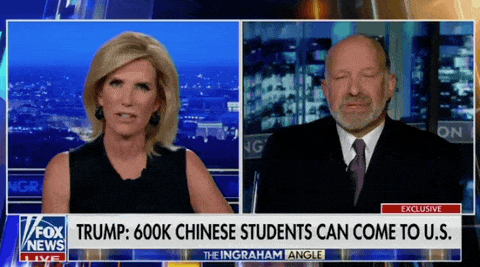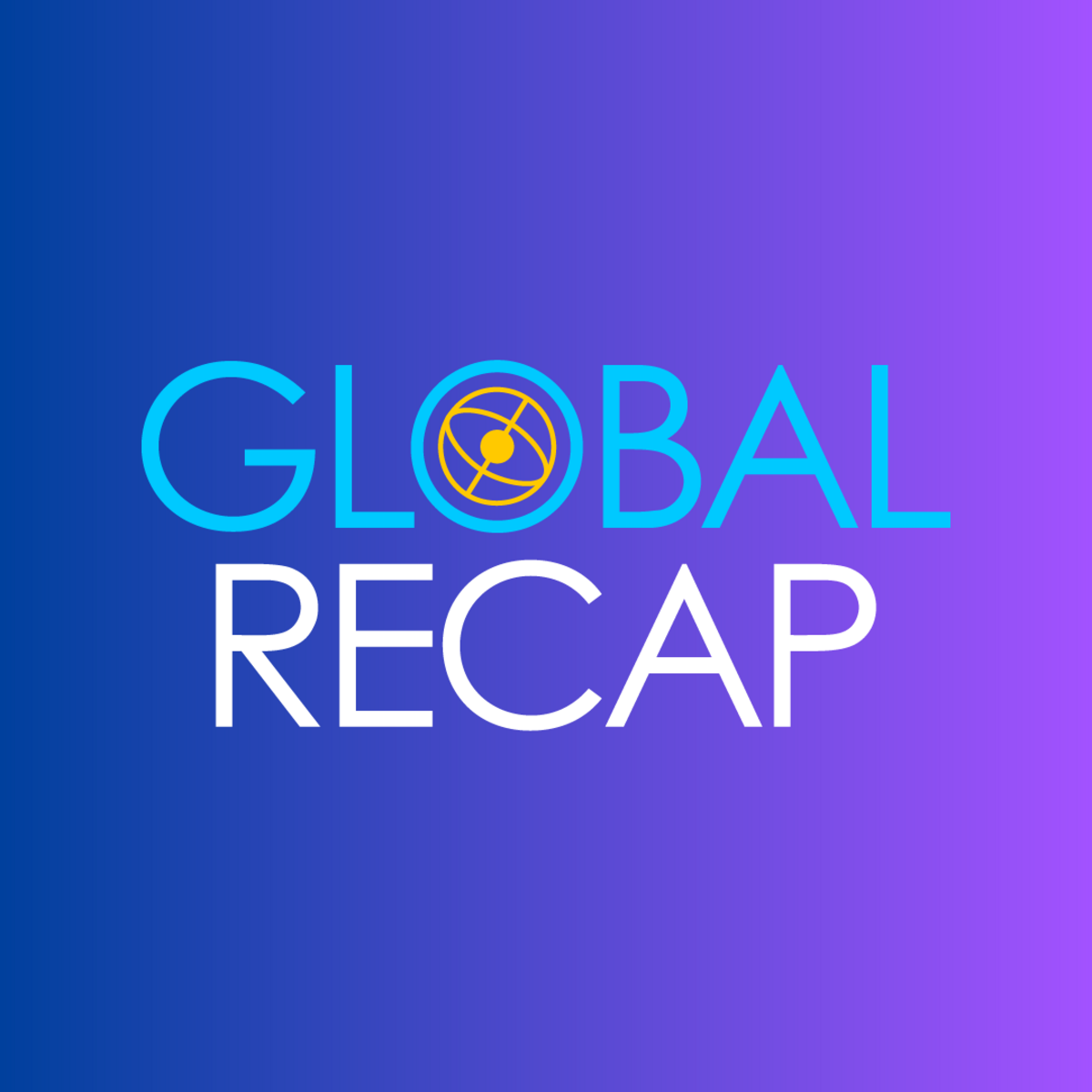
Hi Global Recap readers,
I’ve noticed a trend: a lot of US political influencers try to map the politics of other countries onto America’s left-right spectrum. They skip over the nuance, then rush to defend any foreign leader who looks like “their guy,” treating valid criticism as some kind of ideological hit job.
Take South Korea, for instance:
When ex-president Yoon tried and failed to declare martial law in December 2024, widely viewed as a move to dissolve parliament and tighten his grip on power, was spun by a number of US conservative influencers as if resisting him was the same as attacking conservatism.
Many went as far as saying that critics were stopping Yoon from doing his "patriotic duty."
And today, we saw another round of the same thing. I’ll dig deeper in today’s breakdown. 👇
🌐 WORLD
Fast Scroll News
🇺🇸 Mail Carriers Halt Shipments

Postal services in Germany, France, Britain, and others just suspended all parcel deliveries to the US, amid confusion over new import duties taking effect Friday.
Trigger: The White House killed the “de minimis” rule, which since 2016 let goods under $800 enter the US duty-free. That ends Friday.
Scope: Only personal gifts under $100 will stay duty-free. Everything else gets taxed like standard imports.
Reaction: DHL, La Poste, and New Zealand Post say they’re freezing shipments until they figure out how to comply. Letters still go through.
Complaint: Postal operators say the US gave zero clarity on how duties will be collected or what data needs to be transmitted.
Justification: The White House claims the exemption was “abused” to sneak in fentanyl and dodge tariffs, especially from China and Hong Kong.
📌 Context: The de minimis rule fueled a boom in cross-border e-commerce, with parcel volume jumping from 134 million in 2015 to 1.36 billion in 2024. Most came from China-linked retailers like Temu and Shein.
🇷🇺 Lavrov Shuts Down Summit
Russia’s foreign minister dismissed the idea of a Putin-Zelenskyy meeting, contradicting Trump’s claim that a peace summit was in motion.
Statement: Sergey Lavrov told NBC’s “Meet the Press” that “there needs to be an agenda first,” and bluntly added, “this agenda is not ready at all.”
Timing: His remarks came days after Trump’s Alaska summit with Putin, where Trump claimed Zelenskyy had agreed to meet and that preparations were underway.
Pushback: Vice President JD Vance insisted Russia had made “significant concessions,” including pledges not to install a puppet regime in Kyiv and to respect Ukraine’s territorial integrity.
Demand: Lavrov said Russia must be part of any future security guarantees for Ukraine, a condition widely rejected by European and Ukrainian officials.
Signal: The Kremlin’s tone suggests no real diplomatic traction, despite Trump’s public optimism.
🇺🇸 US Accepts 600K Chinese Students

Fox’s Laura Ingraham pressing Howard Lutnick on Trump’s seemingly contradictory stance on China and elite American colleges.
Click for video
Trump just announced the US will take in up to 600,000 Chinese students as part of a trade deal his administration is negotiating with Beijing.
Scale: The number is more than double the 270,000 Chinese students enrolled at US universities last year.
Diplomacy: He said he hopes to meet Chinese President Xi Jinping this year, adding that Xi invited him to visit China.
Trade: Trump tied the student plan to broader talks on tariffs and rare-earth magnets, warning of a potential 200% tariff if no deal is reached.
Policy: This marks a shift from earlier restrictions, when Secretary of State Marco Rubio vowed to revoke visas of students linked to the Chinese Communist Party.
Timing: Trump revealed the figure on Monday at the White House before meeting South Korean President Lee Jae Myung.
📌 Context: Ingraham justly asks how letting in 600k students from Communist China helps America if it means fewer spots for American students.
She also calls out the contradiction: Trump blasts US colleges for spreading anti-American propaganda, yet at the same time allows a wave of students from a communist country to fill their classrooms.
🇬🇧 UK Migrant Protests Escalate

Opponents and supporters of asylum-seekers clashed across Britain over the holiday weekend after a court ordered a London-area hotel to evict its migrant residents.
Trigger: The High Court backed Epping Forest District Council’s bid to shut the Bell Hotel after weeks of protests, sparked by an alleged sexual assault involving a resident.
Crowds: Anti-migrant group Abolish Asylum System and counterprotesters from Stand Up to Racism faced off in cities like Bristol, with police making more than a dozen arrests.
Numbers: As of June 2025, over 32,000 asylum-seekers were living in hotels, up 8 percent from last year but far below the September 2023 peak of 56,000.
Politics: Opposition leader Kemi Badenoch urged councils to copy Epping’s legal tactics, while Labour dismissed the idea as “desperate and hypocritical nonsense.”
Plans: Prime Minister Keir Starmer pledged to speed asylum appeals, disrupt smuggling gangs, and expand a deal with France to return Channel arrivals.
📌 Context: The newest wave of demonstrations comes after weeks of protests outside the Bell Hotel in Epping, where a hotel resident was accused of trying to kiss a 14-year-old girl and charged with sexual assault. He has denied the allegation and is set to face trial later this month.

🇰🇷🇺🇸 SOUTH KOREA & USA
Trump Meets Lee After Blast

President Trump (left) and President Lee (right)
A few hours after floating the idea of cutting business ties with Seoul, Trump welcomed South Korea’s new president, Lee Jae Myung, to the White House.
However, unlike the last government, which collapsed after a botched attempt at martial law, Lee’s administration is not putting all its cards on the US.
Just like India, it is balancing Washington against Beijing to blunt Trump’s economic coercion. And if Trump keeps pushing, you can bet other countries will try the same.
Morning Fire, Afternoon Handshake
The day started with Trump’s online swipe at Lee’s June election and ended with a photo-op in the Oval.
On Truth Social, Trump called Lee’s rise a “Purge or Revolution” and referenced alleged “raids on churches” tied to a corruption probe.
"Raids on churches" is referring to South Korean prosecutors investigating religious organizations long-accused of funneling money to factions tied to the ousted President.
A central figure of this is Pastor Jeon Kwang-hun, who is accused of illegal campaign financing, bribery, and embezzlement.
Despite being a “pastor” he is reportedly worth millions of dollars through real estate and business ventures like his “Mission Card,” which is marketed as a tool to support religious missions, but is facing criticism for allegedly funneling transactions fees into Jeon’s private organization.
Jeon's Sarang Jeil Church, along with the Unification Church (both raided in the probe) have long been branded “cults” by much of the public.
Lee’s visit was his first to Washington since taking office after Yoon Suk Yeol’s impeachment and removal.
By the meeting, Trump softened his tone, calling it “a misunderstanding” and congratulating Lee. Could it be because of this? 👇
China Outreach in Parallel

Former Speaker of the National Assembly of South Korea Park Byeong-seug (left) and Chinese Foreign Minister Wang Yi (right).
While Lee was in Washington, his envoy was in Beijing laying groundwork for a reset.
Former parliament speaker Park Byeong-seug met Chinese Foreign Minister Wang Yi, delivering a letter from Lee to Xi Jinping and inviting him to October’s APEC summit in Seoul.
Park said the new government would pursue “mature” South Korea–China cooperation while maintaining the US alliance.
Both sides agreed to work on economic and supply chain cooperation, with Wang urging “good neighbourliness” and careful handling of sensitivities.
Trade Talks in the Spotlight
Despite the rocky start, both leaders pivoted to economic cooperation.
Last month, the two governments outlined a trade deal framework cutting tariffs from 25% to 15%, matching EU and Japan rates.
Lee’s team hopes the agreement will unlock hundreds of billions in South Korean investment in US industries, including shipbuilding.
Trump told reporters afterward, “I think we have a deal done,” without giving specifics.
Troll or Not?
There's also this moment from their meeting, where Lee asked Trump about his “role in establishing peace on the Korean peninsula,” then quipped that Trump should put up a “Trump Tower” in North Korea so they could someday hit the golf course together.
The issue: No one’s sure if Lee was just cracking a friendly joke or sarcastically trolling him.
Shared Histories, Different Agendas

President lee was stabbed in the neck with an 18cm knife on January 2, 2024, while visiting the construction site of Gadeokdo Airport in Busan.
Shared personal stories helped break the ice, but big policy differences are still on the table.
Both men survived assassination attempts in the past year and saw political fortunes rise after criminal indictments.
They agreed in June to play golf together and share interest in restarting diplomacy with North Korea’s Kim Jong Un, though Kim has shown no interest so far.
Lee calls himself a “pragmatist” and wants closer ties with China than his predecessor, while keeping the US alliance central.
Security Questions Unresolved
The meeting left key defense issues hanging.
The US has about 28,500 troops in South Korea. Trump incorrectly claimed the number was over 40,000 and suggested he’d like to own the land under a “massive military base.”
Washington wants Seoul to take more responsibility for deterring North Korea and to support US efforts to counter China.
Trump declined to say whether troop levels would change, but promised to visit South Korea later this year, likely during a regional summit.



